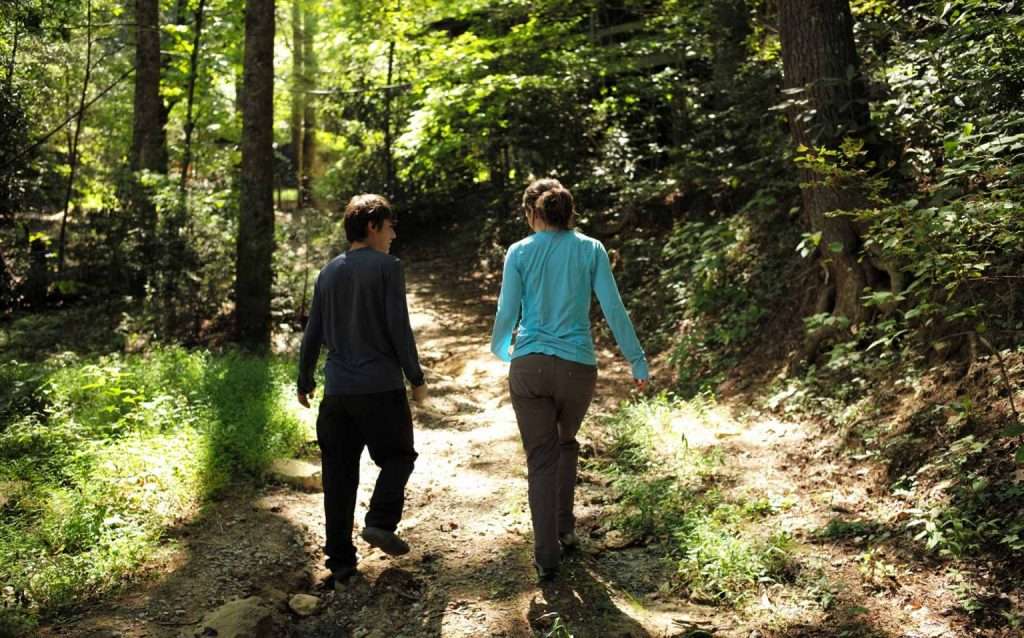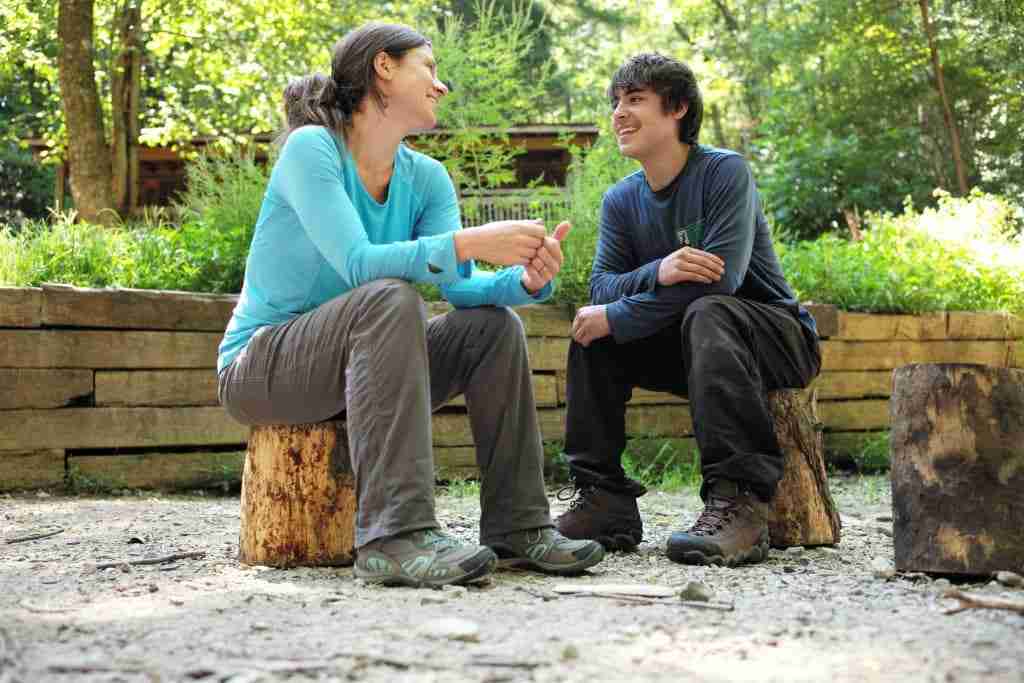Posts Tagged ‘wilderness therapy’
Breaking Free from Technology Addiction: How Trails Carolina Helps Kids Reconnect with Nature as a Form of Technology Addiction Treatment
In an increasingly digital modern world, technology use has become integral to our daily lives. While technology offers numerous benefits and conveniences, the overuse and dependency on smart phones and other digital devices can lead to various negative consequences, including technology addictions, compulsive internet use, and video game obsession. Young people, in particular, are susceptible…
Read MoreTreatment For Anxiety In Teens: How Wilderness Therapy Can Help
At Trails Carolina, we will give your child the skills to manage anxiety in real-time as soon as they arrive on our campus. They will very quickly gain a sense of belonging at Trails because of the sense of community that naturally occurs with the other students who are dealing with the common struggles of learning to manage adolescent anxiety.
Read MoreExercise and Mental Health
Not every person can tolerate modern psychotropic medications intended to treat many of these psychological conditions. At least 20% of people cannot tolerate medications for allergies or other reasons. Because of that, finding alternative solutions that can be adjusted to personal treatment plans is important. Exercise has many health benefits for both mind and body.…
Read MoreRock Climbing Improves Mental Health for Students at Trails Carolina
As the seasons turn, so do our adventure programming opportunities in Western North Carolina. The cool weather creeping in makes for ideal climbing conditions, and Trails’ students will be headed out for rock climbing. Climbing provides an engaging opportunity for our students to work on their confidence, communication, and cooperation. How Rock Climbing Works Rock…
Read MorePutting A Stop to Self-Harm In Teens
As parents, the first thing we want in the world is for our children to be safe. When they are babies, we strap them in car seats and research the best practices for care. When they are young children, we watch them ride a bicycle for the first time with a helmet, training wheels, and…
Read MoreWilderness Therapy Programs For Middle School Students
Adolescence is a significant period of emotional development, where the therapeutic needs of middle schoolers are different from the needs of high schoolers. Teachers understand this and apply different techniques in the classrooms, so why shouldn’t wilderness programs? Currently, Trails Carolina is the only wilderness therapy program for middle school students in the country with…
Read MoreSocial Isolation in Teens: The Damaging Effects of Being Left Out
Teens are social creatures. Just pay attention next time you’re out with your daughter and her friends. If one of them has to go to the bathroom, they will likely all accompany her. Peer relationships are a vital part of your child’s development. So, if your son or daughter is experiencing social isolation, it needs…
Read MoreScreen Time and ADHD: Limiting Screen Time for Teens Struggling with ADHD
More than half of teens ages 12-17 report trying to take steps to limit their personal screen time and 57% claim their parents have tried to limit their technology use in one way or another. Limiting screen time can be particularly challenging for teens and kids with ADHD due to difficulties with self-monitoring and inattention.…
Read MoreHaving Fun While Healing: Therapeutic Activities for Teens
The wonderful part of therapy is that it is not a “one size fits all” practice. And while the word therapy often conjures images of couches or circles of people sitting in meeting rooms, there are actually many ways for teens to engage in therapeutic activities. Therapy doesn’t always have to involve a therapist and…
Read MoreWhy Choose Wilderness Therapy For Teens on the Autism Spectrum: Trails Therapists Explain
Wilderness therapy can be an extremely powerful therapeutic option for young people on the Autism Spectrum. The wilderness is a peaceful place, far away from the overstimulating environments many teens on the spectrum struggle with. Over the years, Trails Carolina has seen hundreds of teens on the spectrum experience positive transformations through our autism therapy…
Read More









